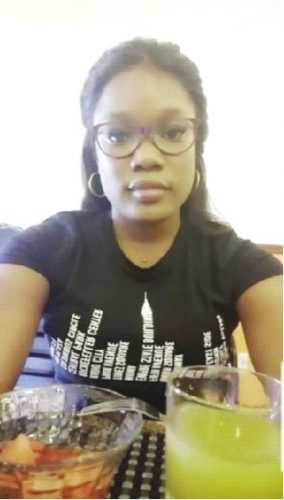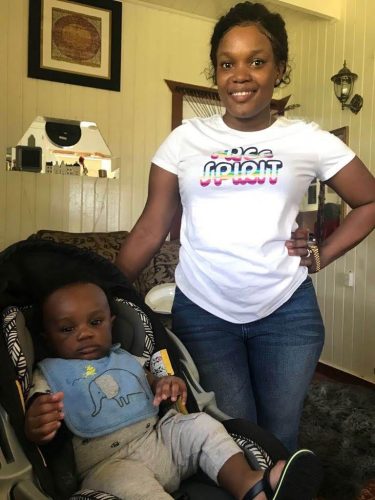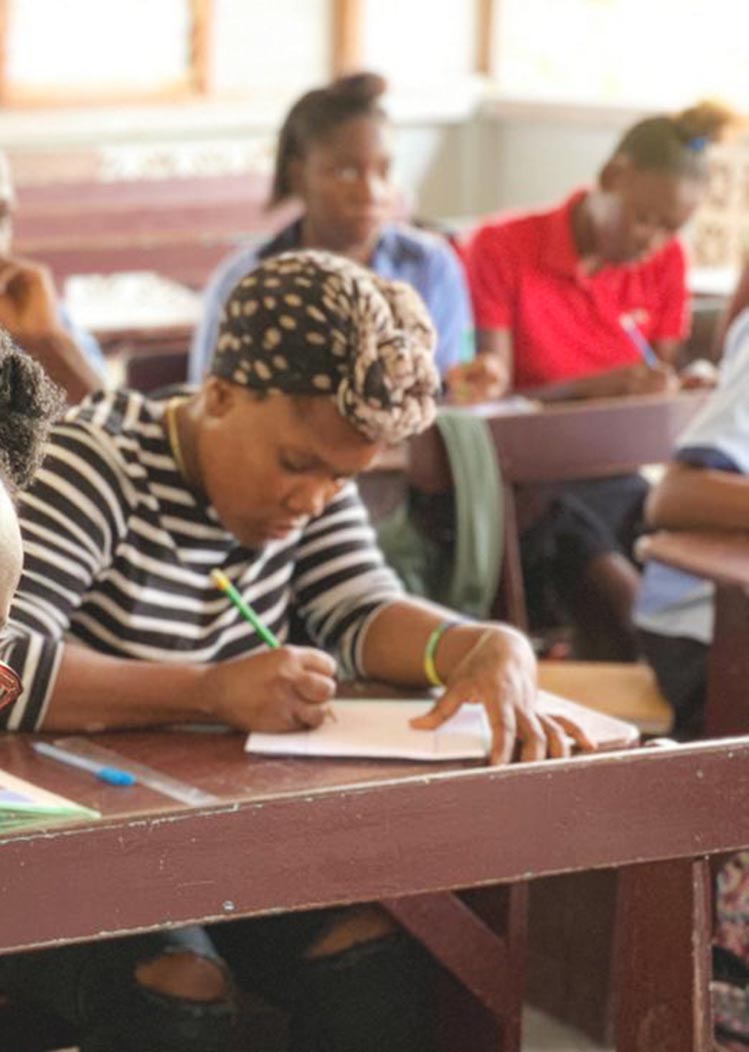As a teenager, Tinishe Bourne failed almost every class in secondary school and after a while she had enough and decided to quit in form four—she was 19 years old. She moved on and started a family but deep down inside her she had a yearning to complete her secondary education; it was a dream she wanted to fulfil.
Fast forward 11 years later and the 30-year-old Bourne recently received Caribbean Secondary Education Certificate (CSEC) results that she is proud of and believes she is closer to becoming a nurse, a profession she now longs to enter.
Bourne’s journey to gaining five grade twos and three grade threes was filled with many potholes, with pain being the deepest of them after the loss of her four-month-old baby boy in 2018 just months after she commenced classes. Initially she wanted to work in the banking sector, but after seeing the treatment her son received, Bourne said she wanted to become a nurse to one day ensure that another mother does not feel the way she did as she watched her infant son slip away.

“Ever since I lost my son, you know, I feel like there was not enough done by the nurses… Losing a child is very hard… it is affecting me a day like today, so I just want to be a paediatric nurse so I can help people and maybe help a mother,” she said.
“In form one, I repeat. I repeat in form two. I get promote in form three and then I dropped out in form four,” Bourne told Stabroek Weekend, describing her days at the Golden Grove Secondary School.
Was she fed-up of failing? “You can say that,” Bourne said with light laughter.
Attempts to get enrolled in a school in Barbados shortly after she dropped out proved futile and she returned home and soon after her first son came into the world.
That union did not work out and Bourne said that was “kind of depressing” and she later relocated to Suriname, leaving her then one-year-old son behind. She got a job in a casino, where she worked for four years, but in 2017 she returned to Guyana and continued to work in the casino business as she was transferred from Suriname.

By then she was in another relationship and became pregnant with her second son. She was forced to resign her job because of the smoky environment. After her son was born in May 2018, she decided she wanted to return to school as she no longer wanted to work in the casino.
“…I wanted better for me and my children,” Bourne said.
She chose the Institute of Business Education (IBE), a low-budget, private school on the East Coast Demerara which allows adults to enrol in its whole-day classes. Bourne said she chose the institute because her cousin attended and did very well and because “it is very affordable, and they accept any and everybody”.
She found attending classes “rough” at the beginning since her fiancé does not live in Guyana and she juggled taking her son to the daycare before heading off to school.
“Preparing myself for daycare in the morning was very hard and then you have to rush out of school to pick him up…,” she said of those initial days.
Readjusting to school life was also difficult for Bourne as not only some of the subjects were strange to her as she never did them in secondary school but she also had to deal with most of the students being much younger than her; some of them were as young as 14. “I was even older than some of the teachers… as I was almost kind of shame but nevertheless I continued to go,” she said.
Weeks after she started attending school, Bourne said, she picked up her son from the daycare and he had a bout of coughing and vomiting. She took him to a private hospital, where he was diagnosed with an infection in his throat, some antibiotics were administered, and he was sent home. However, his condition worsened, and he developed a fever. Bourne returned to the hospital and they then indicated that he had an infection in his lungs; an injection was then administered. The injection was to be administered for three days, but by the second day the doctor was alarmed that the fever was still high. On the advice of a relative, Bourne said, she took the child to the Georgetown Public Hospital, where, after a long time, he was admitted. But then there were no beds in the paediatric ward, and they remained in the emergency room.
“The night when he get admitted he cry, and he cry the whole night and I ask the nurse how come he crying, and no tears is coming, and she say maybe he body is dehydrated, and they give him saline. And then he started to swell, and I ask the nurse to call the doctor because this child is swelling, and she tell me no doctor is available. I have to wait until in the morning. I started to cry because I see he start changing and the morning when the doctor come they rush, they rush but I know it was already too late, and that was it,” Bourne said. She still struggles to talk about her child’s death two years later.
After a post-mortem examination was done, Bourne said, she was told that he had multiple abscesses inside his body and “one burst and kill him”. She was not told what caused the abscesses.
“It is very hard for me a day like today. It used to be my son and I alone in the house so at first I used to get problems sleeping in the house by myself. I used to go by my friend or even by my family just to be out of the house… But a day like today I don’t sleep in our front room that me and my son used to sleep in,” she said.
b
Bourne said she went to the school the day after her son died to inform them of the tragedy. Because of her intense depression, she stayed away for quite while even though the teachers and students called her constantly and encouraged her to return.
“Then I just went back but even after I went back it was like the teacher teaching and everything just blank in my head. I couldn’t take anything in,” she said.
Her cousin Odessa encouraged her not to drop out as it would make no sense, “she tell me try and push through and see what I can do,” she recalled.
She continued and when she wrote the qualifying examination for CXC she failed all the subjects.
During that time, her mother was hospitalized and as the eldest child and the only girl, Bourne said, she was saddled with most of the responsibilities.
“I wanted to quit because I said if I cannot pass the qualifying exams how am I going to pass the real exams… They called me and had a meeting with me and asked me what happened and if I am going to write CXC and I said I would try because I just want to go through and finish school. I did not want to go a next year,” she said.
The months leading up to the exams were difficult as Bourne continued to fail in-class tests. Her mind, she said, “was still blank at times but I still used to push and go through”.
Bourne knew by this time that she wanted to become a nurse, but she was not doing any science subjects and it was on the advice of Jamain Hatton, one of the teachers, that she joined the Integrated Science class.
“I am very grateful for joining that class,” she said. She singled out Hatton, who also taught her English, as one of the teachers who motivated her. But she added that she found the other teachers very patient with students regardless of their age, “and if you ask them a question 40 times, they explain it to you until you understand”.
It was Hatton who checked her results online, as Bourne said she was too nervous and when he sent her the results she just said, “thank you Jesus because I failed the qualifying exams and I passed the real exams”.
Applications for nursing are not being accepted currently and in the interim with her new qualifications Bourne hopes to gain some form of employment.
She advises other women that having a child at a young age is not the end of the world.
“Being a school dropout is not the end of the world, all the above is okay, what is not okay is you just sitting and doing nothing. Try to give yourself a second chance, believe in yourself. First you need to trust God and trust yourself, in today’s society is something for something so if you just sit there and ask for something they are going to ask for something back so just try to elevate yourself.”
She remembers being turned down job after job before she wrote CSEC and how she use to “cry and cry”. She added, “high school education is very important, it is a start”.






